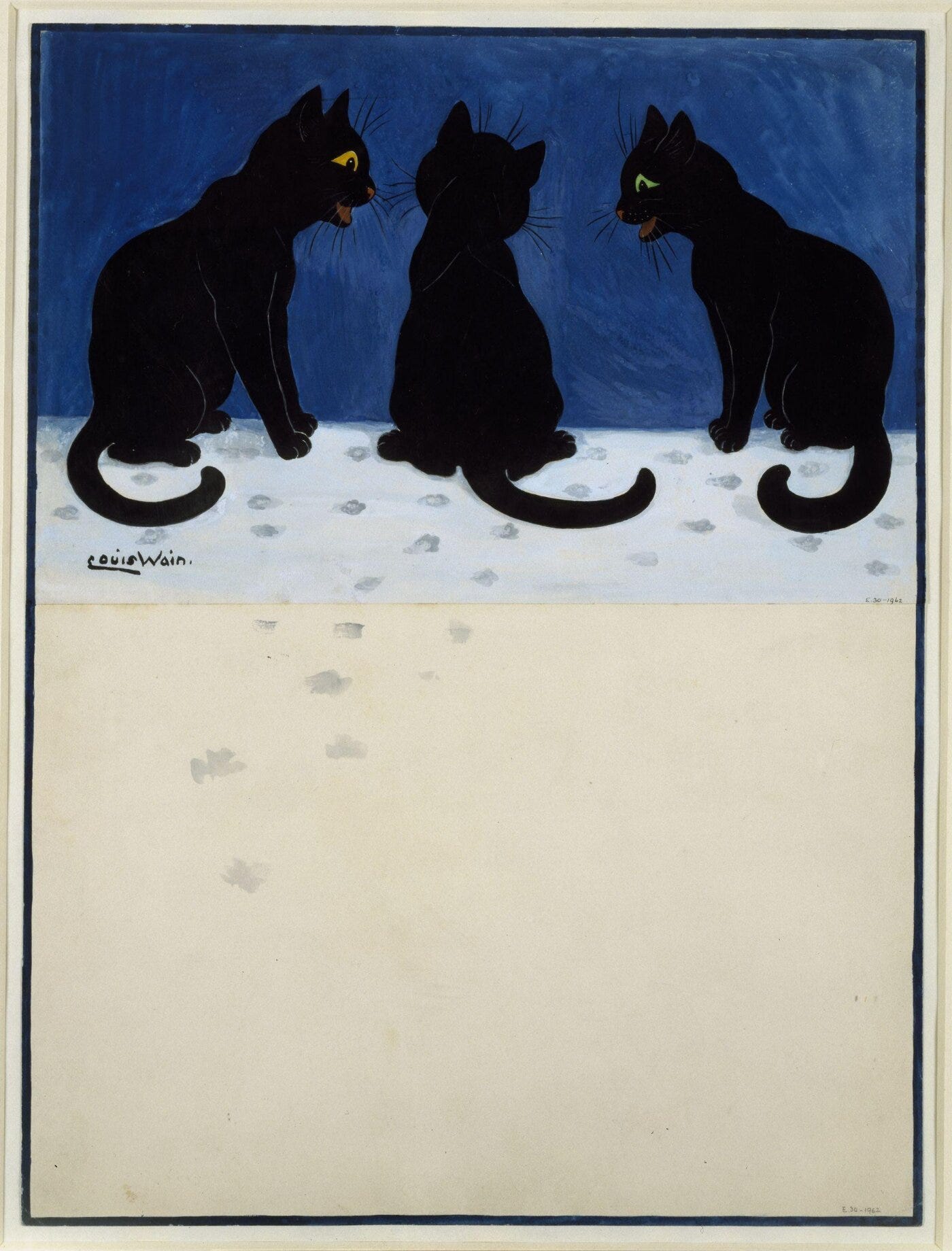November Dream (MMXXII)
I was walking along a tree-lined city boulevard, cobbled historic, of the kind beloved of urbanists and writers of vacation rental advertising copy. This place, the city where I walked, must have been less temperate than my current city, the city where I currently reside, that city being scenic, partaking in a different scenery, less historical, more temperate, though all places, globally speaking, grew and grow more intemperate, in the dream and in the present, a harder swing from winter to summer, from summer to winter, the interstitial months growing more chaotic, everywhere comparatively intemperate compared to the past, compared to the historical average, growing more intemperate, but at differing rates, those rates somewhat orthogonal to the rates for a vacation rental in that city or any other scenic temperate city, such as the city where I walked or where, more properly, I strolled, my sluggish pace for once deliberate. The trees had dropped all or dropped nearly all of their leaves, as a kind of sparse bright token of that relatively intemperate climate, which nevertheless was still nominally temperate, still temperate enough to be named as such (a temperate climate, technically, can be a cold climate indeed) named as such, a temperate climate, but intemperate enough to kill by night from exposure.
Beneath the clear midday sky, a layer of frost gleamed along the worn uneven pavements, strewn with leaves plastered by frost, plastered but still bright, their pigments not yet drained by the cycles of frost and thaw. During my walk or stroll, at regular intervals, once per city block, a small black cat, more properly a young kitten, barely old enough to walk on its own, would venture out from a commensurately small aperture in the cityscape: a downspout, a drainage grate, a gap between empty flowerpots. At these intervals, in the blocks of the city where I walked or strolled, I would stoop down to pet the kitten, and then, after its need for petting was apparently satisfied, the kitten would be sucked back into its small aperture and I would continue on my way. In the intervals between these intervals, the kitten would be shunted, it seemed, to the next location, a block away, where I would meet it and begin the cycle again, or else it was an entirely new kitten, of the same age and pattern; it would be waiting, delivered for the occasion, at that exact interval, one block one kitten. This infrastructure, supporting the emergence, disappearance, and reemergence of the kitten, or the emergence and disappearance of similarly patterned kittens, must have been vast, since these intervals, in which the kitten or kittens emerged, disappeared, and reemerged, lasted for as long as I walked the city, which was vast, significantly larger than the city where I currently reside. The kitten or kittens seemed to enjoy this, seemed to enjoy these intervals as much as I did. It never got old, speaking of my response to these intervals and the cat or cats provided by these intervals and their response apparent to these intervals, my pets being apparently appreciated. These intervals spoke of an older order, in which cities were laid out quite differently from how they are today. There existed an infrastructure which supported the shunting or delivery of young kittens at set intervals, which was seemingly created for this purpose, and could, moreover, have supported the shunting or delivery of a kitten or kittens of any pattern, whether that pattern was seasonally festive or not, October being over, since the size of apertures was the only apparent constraint: a downspout or a drainpipe, that sort of thing. They could have admitted any animal of a similar size. The kitten or kittens that visited me, with their solid black pattern, were a token of the previous month, but the city’s infrastructure still could have serviced them in all weather, in any season. The founders of city must have been very wise, at least in that regard.


